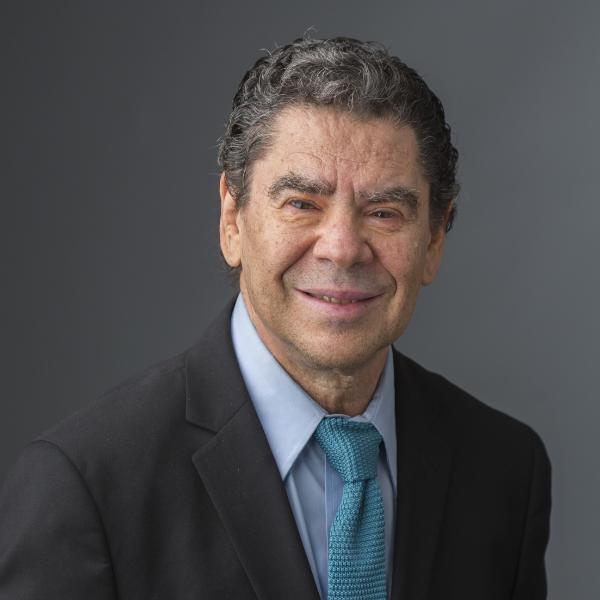Education
- Postdoctoral Fellowship, Physiology and Biochemistry, Harvard Medical School
- Ph.D., Biophysics, University of Chicago
- B.S., Physics, Rensselaer Polytechnic Institute
Areas of Expertise
- Skeletal Muscle Growth and Atrophy
- Molecular Mechanisms
- Selectivity of Intracellular Proteolysis in Erythroid and Muscle Cells
- Role of Proteasomes and Ubiquitin
- Spinal Cord Injury
- Pulmonary Hypertension
- General Human Biology
Honors and Awards
- Established Investigator of the American Heart Association
- Irma T. Hirschl Award, Principal Investigator on grants from NIH, NASA and MDA
Research
With Alfred L. Goldberg, Joseph Etlinger, Ph.D., discovered non-lysosomal ATP-dependent proteolytic activity, credited by awardees of the 2004 Nobel Prize in chemistry, as the seminal observation revealing the proteasome/ubiquitin system. In subsequent studies, with his students and colleagues, novel factors involved in the regulation of this pathway, including a ubiquitin ligase critical to pulmonary arterial hypertension, were identified. Dr. Etlinger proposed how myofibrils turn over during muscle growth and atrophy and the roles of calcium, ATP, and beta-adrenergic receptors in these conditions. Finally, he identified modalities to improve recovery from spinal cord injury, including beta-agonists, x-irradiation, and inhibitors of glucose toxicity.
Publications
- Leppert C, Ochoa MT, Etlinger JD, et. al. "Epigenetic Activation of Endothelial Smurf1 via EP300-Mediated H3K27ac Disrupts BMPR2 Signaling in Pulmonary Arterial Hypertension." bioRxiv : the preprint server for biology, (), (2025) . pii: 2025.10.30.685664. doi: 10.1101/2025.10.30.685664
- Zeman RJ, Brown AM, Wen X, et. al. "Tempol, a Superoxide Dismutase Mimetic, Inhibits Wallerian Degeneration Following Spinal Cord Injury by Preventing Glutathione Depletion and Aldose Reductase Activation." Journal of neurotrauma, 41(17-18), (2024) 2186-2198. doi: 10.1089/neu.2024.0137
- Zeman RJ, Wen X, Ouyang N, et. al. "Role of the Polyol Pathway in Locomotor Recovery and Wallerian Degeneration after Spinal Cord Contusion Injury." Neurotrauma reports, 2(1), (2021) 411-423. doi: 10.1089/neur.2021.0018
- Sehgal PB, Westley J, Lerea KM, et. al. "Biomolecular condensates in cell biology and virology: Phase-separated membraneless organelles (MLOs)." Analytical biochemistry, 597(), (2020) 113691. doi: 10.1016/j.ab.2020.113691
- Zeman RJ, Wen X, Moorthy CR, et. al. "Therapeutic target for external beam x-irradiation in experimental spinal cord injury." Journal of neurosurgery. Spine, 32(5), (2020) 649-656. doi: 10.3171/2019.11.SPINE19305
- Murakami K, Etlinger JD. "Role of SMURF1 ubiquitin ligase in BMP receptor trafficking and signaling." Cellular signalling, 54(), (2019) 139-149. doi: 10.1016/j.cellsig.2018.10.015
- Etlinger JD. "An Exciting Couple." Journal of pediatric ophthalmology and strabismus, 55(3), (2018) 149-150. doi: 10.3928/01913913-20180409-04
Teaching Responsibilities
- Medical Cell Biology and Anatomy
- Graduate Histology and Graduate Cell Biology
- Dental Histology
- Cell Biology Topics
- Journal Club


